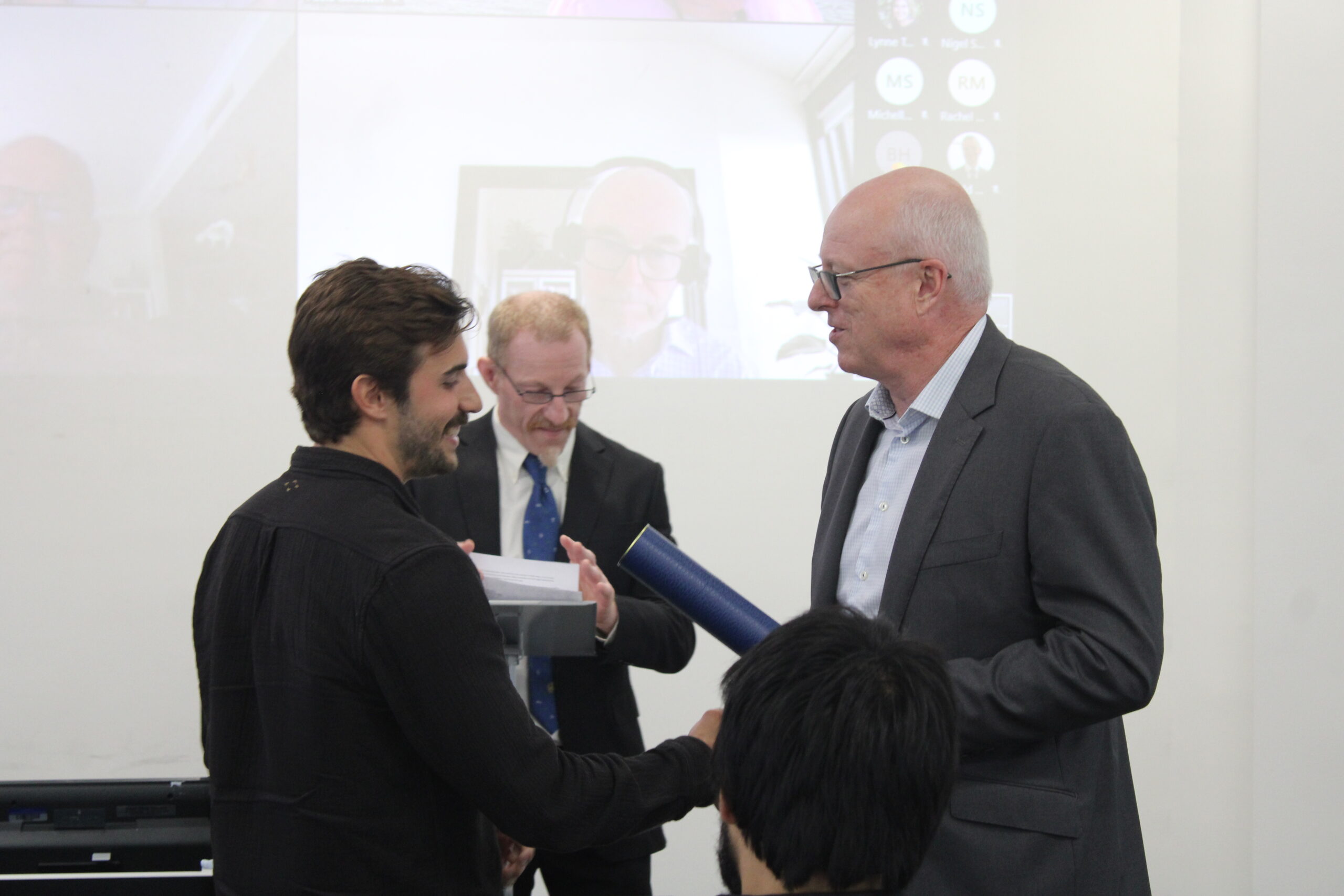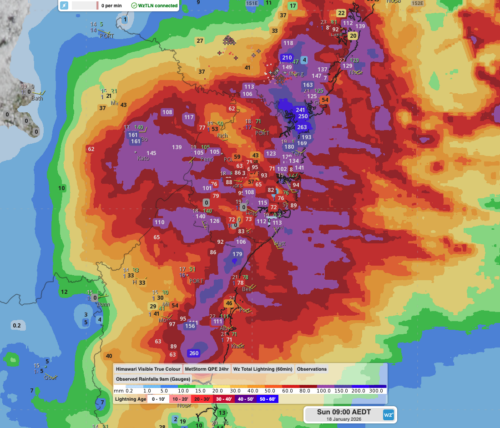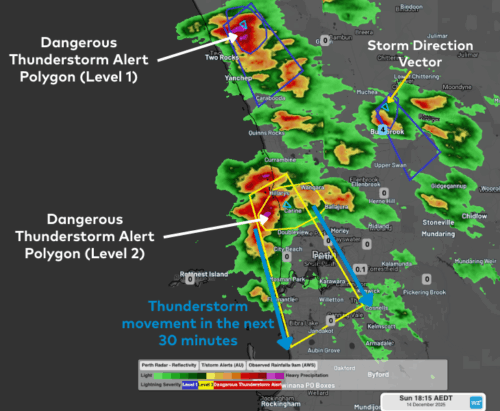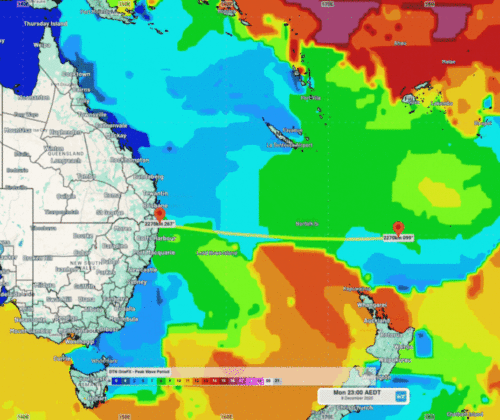Weatherzone and DTN both honour the accomplishments and prioritise the professional development of our dedicated team. In a world that continually accelerates with advancements across the science and tech space, our responsibility and passion is to stay at the forefront. Our experts are always broadening their innovative capacity, and undergoing continuous education in response to the extraordinary breakthroughs humans are achieving across the globe.
The Basic Instruction Package for Meteorologists
Most recently, we celebrated the achievements of our Sydney-based meteorologist Felix Levesque. He graduated, completing the Basic Instruction Package for Meteorologists (BIP-M), after two years of balancing study with his rigorous schedule at Weatherzone, a DTN company.
The BIP-M is a globally recognised, comprehensive path of study overseen by the World Meteorological Organization (WMO). Its overall aim is to provide ‘a robust and broad range of knowledge of atmospheric phenomena and processes, together with the key skills related to the application of this knowledge.’1 The BIP-M is also the mandatory qualification enabling our operational meteorologists to forecast for Aviation and Warning services.
The making of a meteorologist
Felix Levesque’s interest in meteorology began with his teenage fascination with the ocean. When he was 14, Felix and his family left Montréal in Canada – trading snowy winters for hot Australian summers spent floating in the Pacific. Felix wasted no time learning to surf, and training to become a Surf Lifesaver. His inherent need to understand what he perceived around him—specifically, the behaviour and phenomena of both ocean and atmosphere—became a strong driver.
Felix graduated from the University of NSW with an Honours Degree in Physical Oceanography (with a physics major). His thesis explored fluid flow dynamics, particularly wave and weather impacts on coastal regions. He wished to be able to apply the dense theoretical concepts he’d learned to the realities of his environment – especially the ocean – and to follow his ardent curiosity. Felix began his career as a casual meteorologist at Weatherzone, the first few months with us in 2018/2019 saw him working around the clock as the Black Summer bushfires took hold. It wasn’t long before he moved into the position of full-time Meteorologist. And now, we congratulate him on his BIP-M graduation in Melbourne – a brilliant achievement!
Given the rapid advancements in all aspects of meteorology including technology, science and forecasting modelling, it’s imperative that we give our staff every opportunity to advance their professional development. Weatherzoneand DTN, provide numerous avenues for this, including supporting conference attendance, visiting business customers on-site to discuss the integration of our support solutions, and international travel to work in challenging and extreme environments such as Antarctica. As our valuable team are given opportunities to stretch, their extraordinary expertise drives our capacity to constantly evolve our services for businesses and the public, enhancing safety and awareness for all.
This year, Weatherzone’s internal training for Meteorologists is focused on tropical cyclone forecasting, severe thunderstorms, and heatwaves. As we continue to deepen our understanding and innovation in these spaces, we can continue addressing the growing implications of these conditions for communities and businesses across the globe.
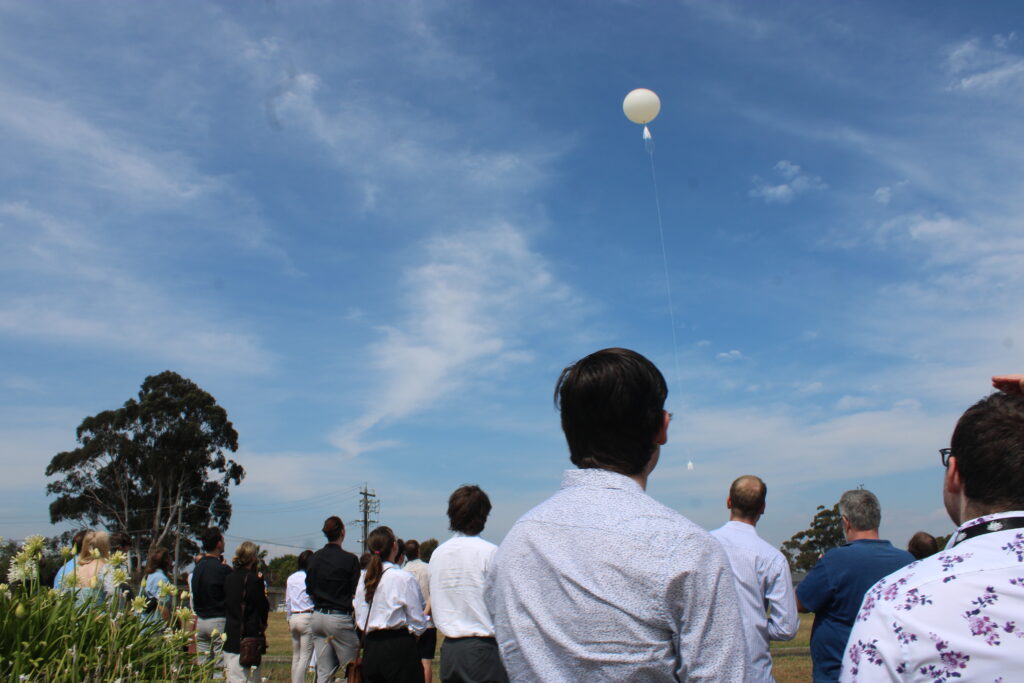
Forecasting for Aviation and Warnings
Our DTN APAC, a DTN company BIP-M trained operational meteorologists support aviation as one of our key industries, providing specialised aviation and industry forecasting expertise, warning and alerting, and weather solutions to optimise weather risk response. If you have a complex weather challenge that requires a cutting-edge and proven solution – we are here to guide you.
Whatever industry your business belongs to, take advantage of an entirely customised service finely tuned to your considerations and operational parameters. Together, we can identify opportunities to reduce risk and inject confidence into your response to the weather in all its forms.

1 https://asn.desire2learn.com/resources/D2605823/Info
Article written by Rebekah Moore- Hart

